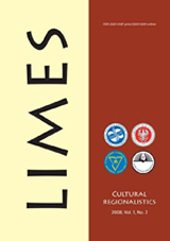Tolerance Boundaries and Cultural Egalitarianism
Tolerance Boundaries and Cultural Egalitarianism
Author(s): Saulius KanišauskasSubject(s): Cultural history
Published by: Vilnius Gediminas Technical University
Keywords: egalitarianism; constant of requisite disharmony; tolerance boundaries; tolerance paradox.
Summary/Abstract: The significance of formal criteria which could help to sort out the problem of tolerance paradox has emerged in the background of cultural egalitarianism. Alas, such criteria have not been established so far. The conviction that the problem of tolerance is significant just in the context of social and political discourse might be questioned due to the fact that this attitude did not help to tackle this problem throughout the last centuries. The paper aims to show that the problem of tolerance can be solved taking into account systemic attitude and synergetic insights. The current study into the literature on tolerance concludes that the formal criterion, which defines the tolerance boundaries in the most general sense, is considered to be such deviations from the standard (as ideal parameters of social system) when tolerance can function normally (stably). Cultural egalitarianism, which requires equalizing the rights of the majority and the minorities facing discrimination, impinges on the ratio of necessary diversity, and thus has to be questioned.
Journal: LIMES: Cultural Regionalistics
- Issue Year: 2010
- Issue No: 1
- Page Range: 67-79
- Page Count: 13
- Language: English

